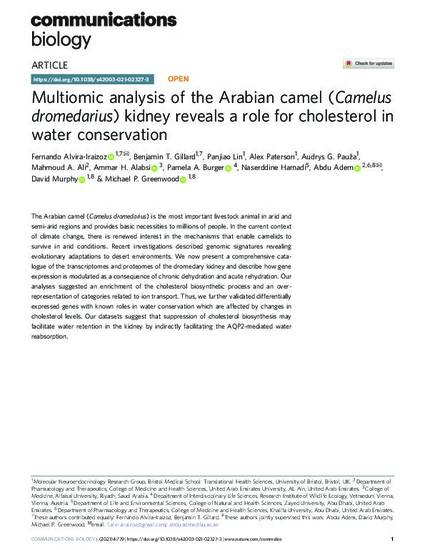
The Arabian camel (Camelus dromedarius) is the most important livestock animal in arid and semi-arid regions and provides basic necessities to millions of people. In the current context of climate change, there is renewed interest in the mechanisms that enable camelids to survive in arid conditions. Recent investigations described genomic signatures revealing evolutionary adaptations to desert environments. We now present a comprehensive catalogue of the transcriptomes and proteomes of the dromedary kidney and describe how gene expression is modulated as a consequence of chronic dehydration and acute rehydration. Our analyses suggested an enrichment of the cholesterol biosynthetic process and an overrepresentation of categories related to ion transport. Thus, we further validated differentially expressed genes with known roles in water conservation which are affected by changes in cholesterol levels. Our datasets suggest that suppression of cholesterol biosynthesis may facilitate water retention in the kidney by indirectly facilitating the AQP2-mediated water reabsorption.
Available at: http://works.bepress.com/naserddine-hamadi/2/